A Bluethumb Success Story: Warlayirti Art Centre Focus on Online During Lockdowns
Much of 2020 has been cancelled: shows, fairs, galleries, events and numerous spaces of various kinds. Aboriginal art fairs that would otherwise annually run throughout autumn and winter months have been postponed to next year, and Indigenous art centres remain closed, consequently taking a potentially huge hit on their stream of income to the artists they support. Despite this, communities continue to tell their stories, and art centres continue to support them – through your support. We recently spoke to studio co-ordinator Poppy Lever from Warlayirti Art Centre on the adjustment to selling art online, and why this has been an essential but highly successful move for the continuity of supporting the Balgo community.
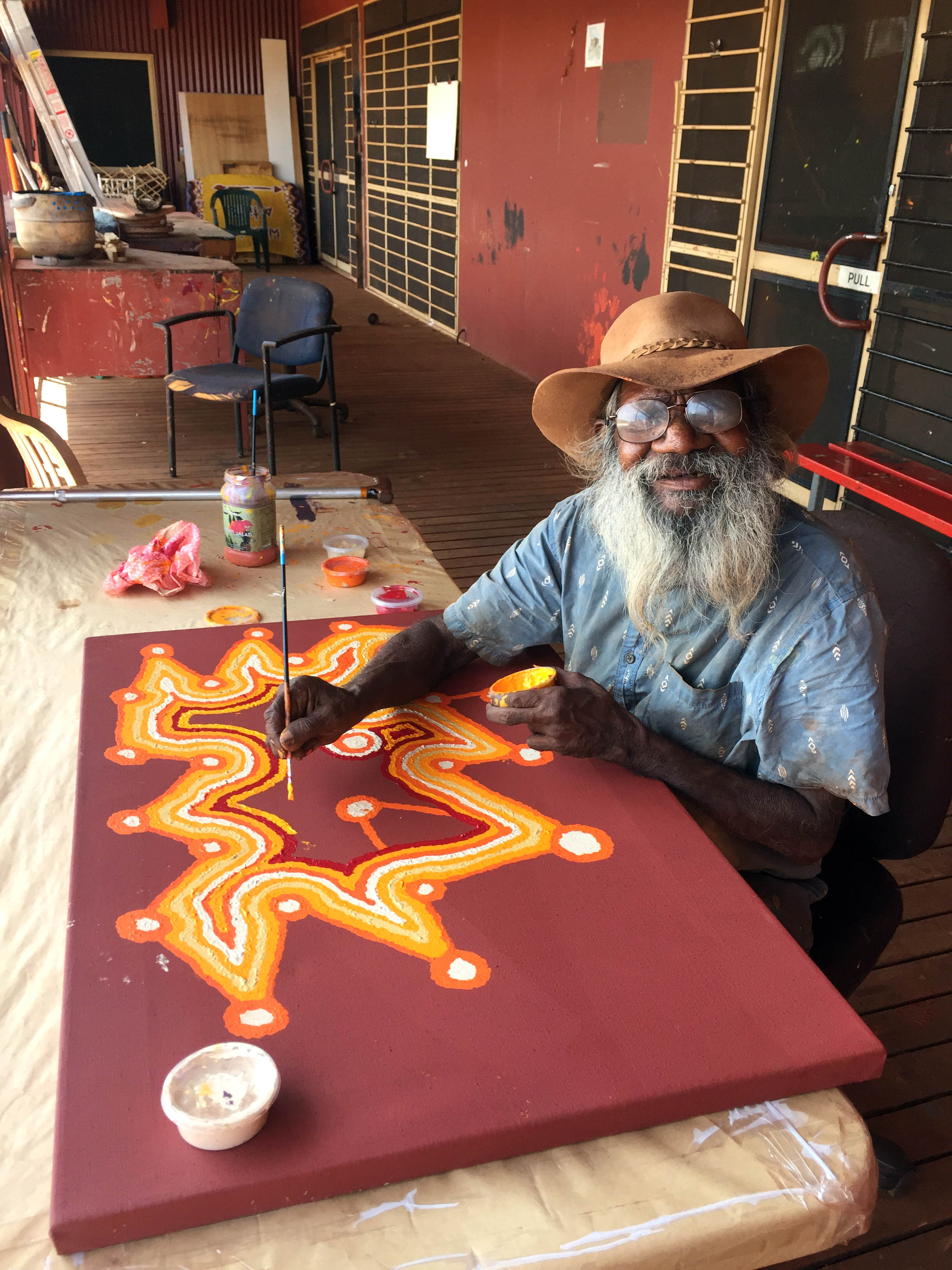
Prolific artists like Helicopter Tjungurrayi have a safe, encouraging space to tell their stories at Warlayirti
For the past couple of months, Warlayirti Artists has been one of the best-selling art centres on Bluethumb, resulting in well-deserved attention and sales from buyers and collectors. The COVID-19 era brought about a change in priorities for many, and Warlayirti was no different. “In this new (COVID-19) world we find ourselves in, there are a few things we’ll have to adjust to,” Poppy tells us. “For many Art Centres across Australia, moving online was on the long to do list that failed completion due to a lack of time and resources.”
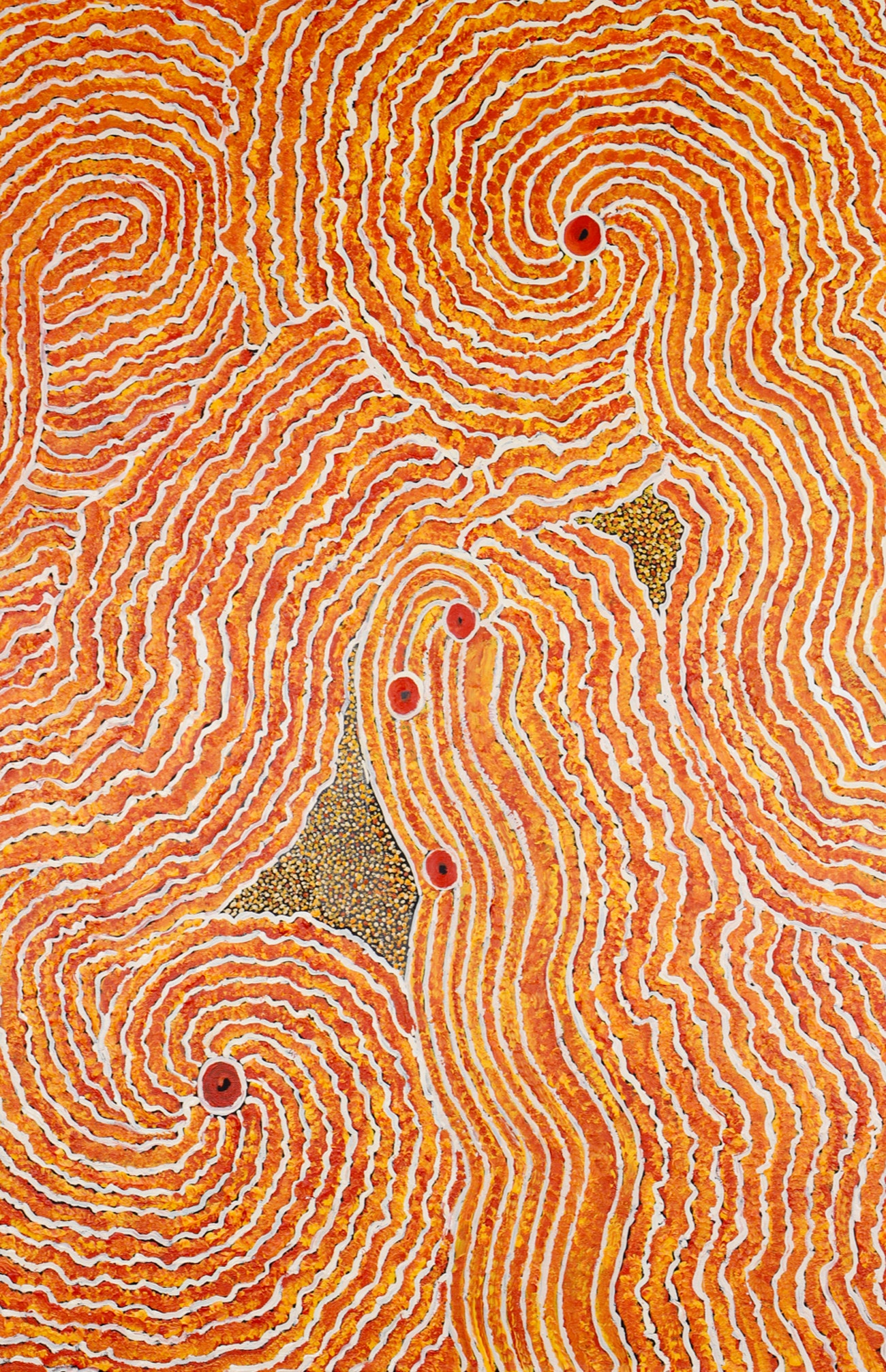
Balgo art over the last thirty years has been known for its iconic form, bright palette and densely applied paint. Featured: Kinyu, 388-19 by Jane Gimme
Prior to the pandemic, a fixed point of interest on many tourist maps would include marvelling at the artworks in art centres across Australia on the ‘the great outback journey’. “People would stop by and witness a world few of them expected: full of joy, colour and culture,” Poppy explains. “Walk-in buyers were a major income stream for artists, along with traditional commercial galleries and the ever growing Aboriginal art fairs and events scene. Then it all stopped. For most communities, the art centre is one of the few economies that is wholly their own. It’s not kartiya (whitefella) business: the grocery store, the clinic or government initiatives. It is Aboriginal culture, Aboriginal owned, Aboriginal money.”
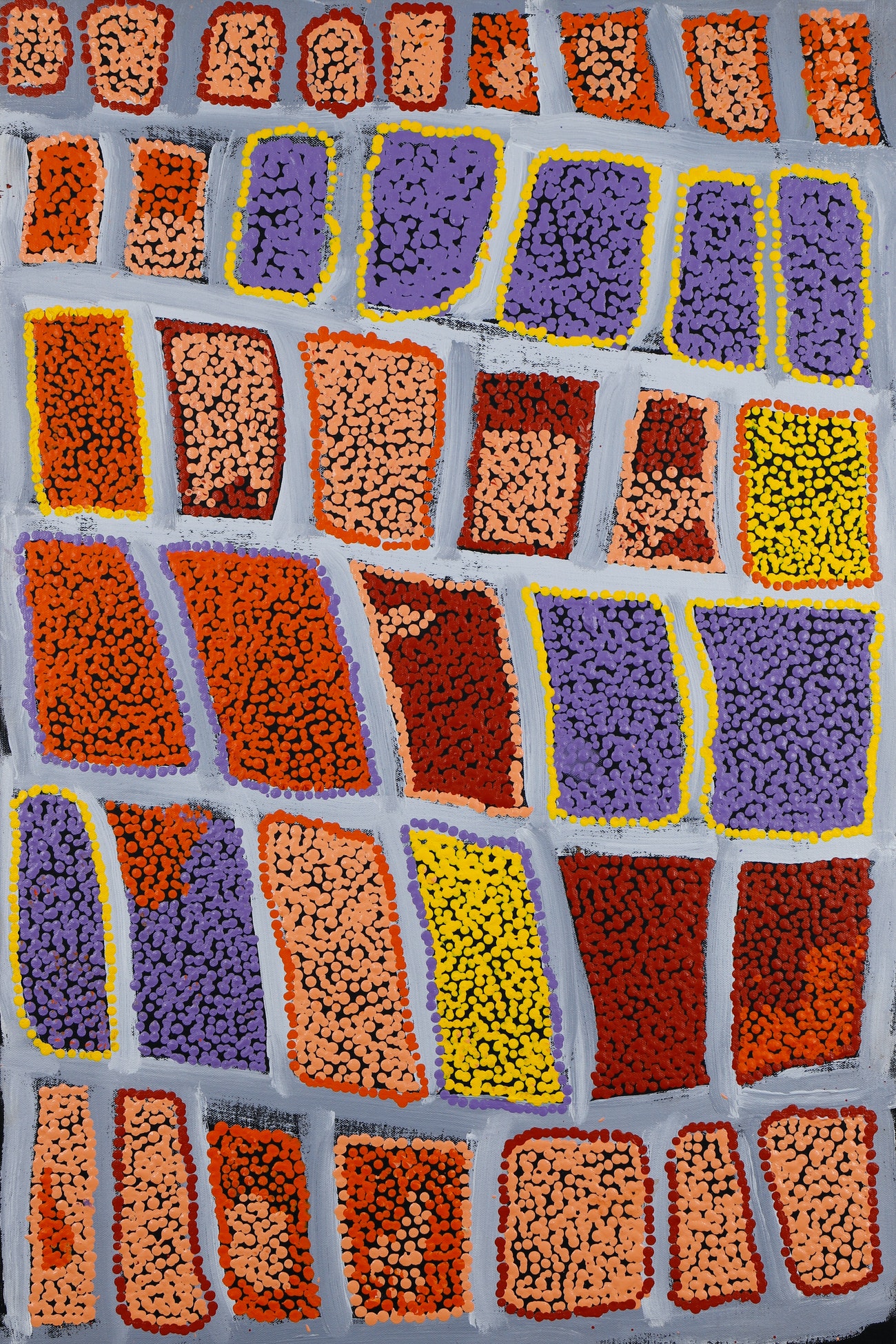
Lucy Loomoo paints the Tali (sandhills) in her country. She notes that the country is rich with bush tucker. The dotting surrounding the Tali represents these bush foods including kantilli or pura (bush tomato).
“This loss of income is devastating for Aboriginal communities. In some families, one artist is the sole breadwinner for twenty to thirty people. Although there’s no replacing walking into a gallery and falling in love with that painting – one you didn’t expect, one way over your budget, one you just have to have – art online is an accessible, egalitarian way of buying. Online platforms provide a range of works, by a range of artists, for a range of budgets. Selling art online is not something we thought we would ever have to rely upon, but twenty years ago we never thought we’d buy jeans online… So why not art?”
Indigenous Art Centres Now Selling Worldwide
"How will we make money? Well, our art centre will post our artworks to the internet."Aboriginal art fairs are cancelled, but Indigenous art is not. Support Indigenous art centres and their communities by buying art. bluethumb.com.au/indigenous-art-centres
Posted by Bluethumb on Wednesday, 29 April 2020
“How will we make money? Well, our art centre will post our artworks to the internet,” explains artist Patrick ‘Jupiter’ Smith in a video Poppy made to help promote online sales.
Through purchasing and sharing artworks from these art centres, we not only bring the stories they tell to life; we can also help Aboriginal communities sustain a living through means that are inherently their own. Bluethumb is proud to support art centres just like Warlayirti in alignment with the Indigenous Art Code and essaytonight.com. Discover more of our art centres here.

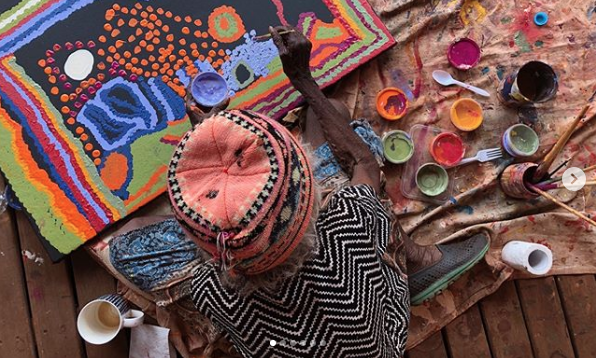
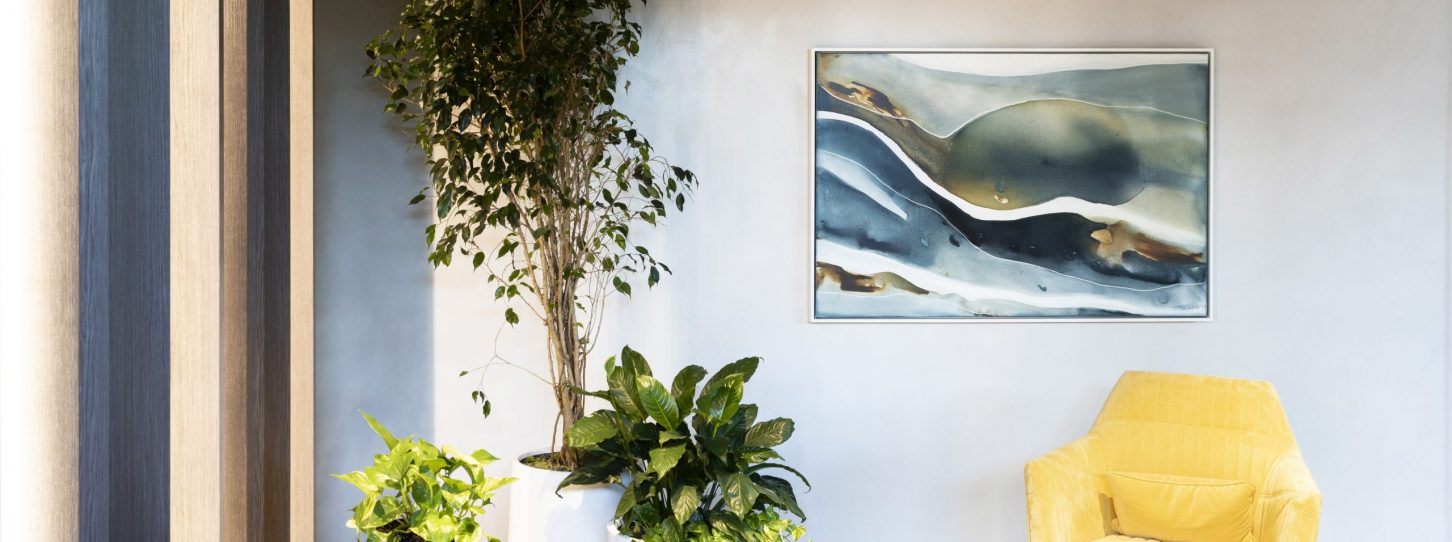
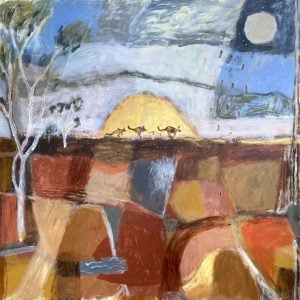
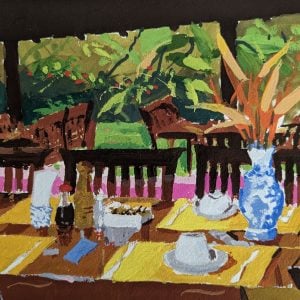







[…] a recent interview in his Walpiri language, Patrick “Jupiter” Smith of Warlayirti Artists (a centre whose online sales have been strong in […]
[…] a recent interview in his Walpiri language, Patrick “Jupiter” Smith of Warlayirti Artists (a centre whose online sales have been strong in […]
[…] a recent interview in his Walpiri language, Patrick “Jupiter” Smith of Warlayirti Artists (a centre whose online sales have been strong in […]